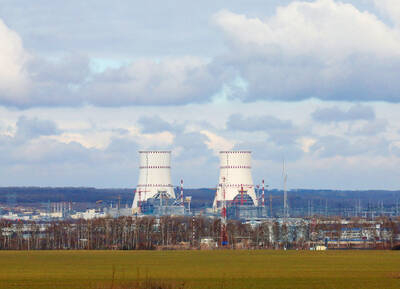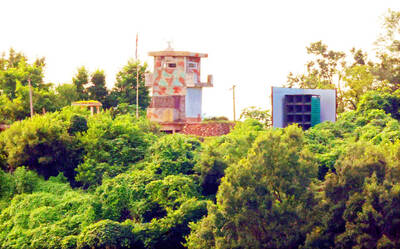China’s slowing economy has left millions of young people fiercely competing for an ever-slimming raft of jobs and facing an increasingly uncertain future.
Official data released this month showed that one in five young people in Chinese cities was out of work last month — more than three times the national average and the highest recorded since January 2018.
Nearly 11 million graduates entered China’s bleak job market this summer, with the economy growing at 0.4 percent in the second quarter, the weakest in two years.
Zhao Yuting, 22, told reporters that companies were reluctant to hire as the economy cools — and that experienced workers were now jostling for entry-level jobs, elbowing out green hands such as her.
Since graduating last month, she submitted her CV to dozens of companies.
Only a handful called her back for an interview, only to turn her down saying she lacked experience.
Armed with a degree in English, Zhao thought she could earn a living as a tutor until she found full-time work.
However, recent crackdowns on the tech and education sectors, which usually absorb fresh talent, have evaporated such jobs.
“I’ve been job hunting for two or three months, but the prospects of being hired look slim,” said Zhao, who has been forced to move back in with her parents while she hunts for work. “The longer it takes, the greater the pressure.”
Analysts blame a slowing economy crippled by COVID-19 lockdowns, as well as the large cohort entering the labor force during the graduating season in July and August, for the slim prospects facing China’s youth.
Official data do not track unemployment among rural youth, and the real unemployed population could be more than double the official number, said Bo Zhuang, an economist at research group TS Lombard.
“The reality is more serious than what the data shows,” said Ho-fung Hung (孔誥烽), who specializes in China’s political economy at Johns Hopkins University. “If the problem continues without remedy, it will easily spread social disorders.”
At a job fair in the tech hub Shenzhen, long lines of anxious parents and young graduates waited for a chance to chat with recruiters.
However, headhunters at the fair said they were cherry-picking graduates from top universities, because only a few positions were available.
“My goal was to work in Shenzhen, in China’s Silicon Valley,” Luo Wen, a computer science graduate, told reporters. “But after more than four months of searching, I’m ready to work even in a smaller city, for less pay.”
Graduates who managed to find work this year were offered salaries that were on average 12 percent less than last year, data from online recruitment firm Zhaopin showed.
While some jobseekers were lowering their ambitions, others were biding their time pursuing further studies.
Experts said that this might lead to “degree inflation,” where employers demand higher and higher qualifications for jobs that do not necessarily require them.
Analysts blamed government policies that saw a rapid rise in college students over the past decade as the economy failed to accommodate more knowledge workers.
The government has pledged to shore up employment by offering tax relief for small businesses and more start-up funding.
Chinese Premier Li Keqiang (李克強) has said China’s employment crisis is “complex and grave,” and called on state-owned companies to step up to stabilize the economy.
As growth in the private sector slows, jobseekers have flocked to cram schools to prepare for highly competitive civil service exams.
A record-breaking 2 million people signed up for the national civil service exam last fall.
A recent survey by 51job, one of China’s biggest job search services, found that 40 percent of respondents preferred stable state jobs over corporate careers.
However, for Zhao, who cannot afford to study further and does not have the connections to secure a government job, few options remain.
“I feel that I can’t see the future,” she said. “I haven’t made any progress. It’s miserable.”

Philippine President Ferdinand Marcos Jr has fired his national police chief, who gained attention for leading the separate arrests of former Philippine president Rodrigo Duterte on orders of the International Criminal Court and televangelist Apollo Carreon Quiboloy, who is on the FBI’s most-wanted list for alleged child sex trafficking. Philippine Executive Secretary Lucas Bersamin did not cite a reason for the removal of General Nicolas Torre as head of the 232,000-member national police force, a position he was appointed to by Marcos in May and which he would have held until 2027. He was replaced by another senior police general, Jose

POWER CONFLICT: The US president threatened to deploy National Guards in Baltimore. US media reports said he is also planning to station troops in Chicago US President Donald Trump on Sunday threatened to deploy National Guard troops to yet another Democratic stronghold, the Maryland city of Baltimore, as he seeks to expand his crackdown on crime and immigration. The Republican’s latest online rant about an “out of control, crime-ridden” city comes as Democratic state leaders — including Maryland Governor Wes Moore — line up to berate Trump on a high-profile political stage. Trump this month deployed the National Guard to the streets of Washington, in a widely criticized show of force the president said amounts to a federal takeover of US capital policing. The Guard began carrying

Ukrainian drone attacks overnight on several Russian power and energy facilities forced capacity reduction at the Kursk Nuclear Power Plant and set a fuel export terminal in Ust-Luga on fire, Russian officials said yesterday. A drone attack on the Kursk nuclear plant, not far from the border with Ukraine, damaged an auxiliary transformer and led to 50 percent reduction in the operating capacity at unit three of the plant, the plant’s press service said. There were no injuries and a fire sparked by the attack was promptly extinguished, the plant said. Radiation levels at the site and in the surrounding

‘DELIBERATE PROVOCATION’: Pyongyang said that Seoul had used a machine gun to fire at North Korean troops who were working to permanently seal the southern border South Korea fired warning shots at North Korean soldiers that briefly crossed the heavily fortified border earlier this week, Seoul said yesterday after Pyongyang accused it of risking “uncontrollable” tensions. South Korean President Lee Jae-myung has sought warmer ties with the nuclear-armed North and vowed to build “military trust,” but Pyongyang has said it has no interest in improving relations with Seoul. Seoul’s military said several North Korean soldiers crossed the border on Tuesday while working in the heavily mined demilitarized zone (DMZ) separating the two Koreas. The incursion prompted “our military to fire warning shots,” South Korea’s Joint Chiefs of Staff